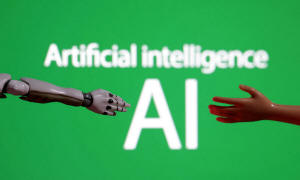|
TCS,
which has clients such as Rolls Royce, Jaguar Land Rover and
Siemens, has seen product development cycles for
engineering-related clients quicken by as much as 20% and
expects further improvement, Sreenivasa Chakravarti, vice
president of internet of things and digital engineering, said on
Wednesday.
Generative AI has taken centre stage in the space and clients
are replanning budgets and product features, Chakravarti said.
He did not name any clients while referring to the productivity
improvements.
"It (generative AI) is used for code generation, testing and
quality (assurance) which are low-hanging fruits right now."
Engineering, research and design services, which include
technology support to hardware-oriented industries such as
self-driving and sustainability solutions for oil and gas
companies, contribute a sixth of the revenue in India's storied
$254 billion tech industry.
The niche was estimated to grow 7.5% in the fiscal year 2024,
the fastest among all sectors, according to data from the
National Association of Software and Service Companies.
The IT industry body expects the engineering, research and
design space to nearly quadruple between 2023 and 2030 to as
much as $170 billion.
Apart from pure-play software services firms such as TCS,
Infosys and Wipro, the space also has focussed players like Tata
Elxsi, Cyient and L&T Technology Services.
India's core software services have been facing macroeconomic
headwinds and technology sector growth is estimated to have
slowed as clients hold back spending.
Meanwhile, the engineering, research and design niche has been
heating up as large IT firms buy out peers.
Cognizant snapped up digital engineering firm Bulcan for $1.3
billion in June and Infosys acquired German player in-tech for
$480 million this year.
(Reporting by Sai Ishwarbharath B; Editing by Mrigank Dhaniwala)
[© 2024 Thomson Reuters. All rights
reserved.]
This material may not be published,
broadcast, rewritten or redistributed.
Thompson Reuters is solely responsible for this content.

|
|




